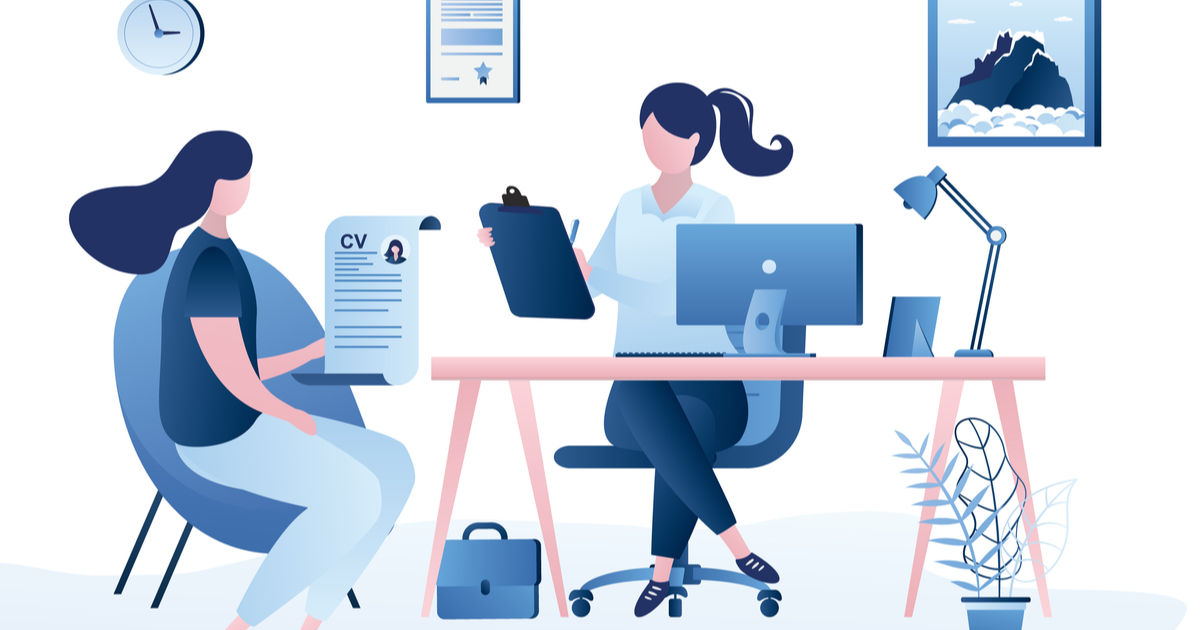Blog
Common Interview Questions & Answers

Why do you want this job?' 'What are your greatest professional strengths?' 'How did you hear about the position?' 'If you were an animal what would you be?' OK, so that last one is a bit unusual but it highlights that you can never predict exactly what you'll be asked at interview.
Make sure you have prepared your answers to the most commonly asked interview questions and you'll have a head start. Don't be tempted to improvise or answer on the spur of the moment. It'll never come out as well as you'd hoped. Answers don't need to be scripted, just know why you want the job & what your strengths and weaknesses are. Make sure you're yourself and get across your personality in your answers.
Q1. Tell me about yourself?
Talk about putting you on the spot! This a common opening question and one you should take full advantage of. The interviewers want to know more about you and they also want to see how you react. Keep your answer pertinent and try not to go off topic. Remember you are there to interview for a particular position and you shouldn't lose sight of this. The interviewer does not want your life story and is not making small talk.
Answer: Keep it brief (2-3 minutes long) and talk about your education, work history, interest in the field and experience.
Q2. Why did you leave your previous position?
Answer: This is a tricky one. Try not to lie but remain positive and do not be tempted to criticise your employer. Be honest with yourself and then put a positive spin on it and frame your response in a way that includes the job you are interviewing for. It may be that you want more responsibilities, you have a desire to learn, a desire to improve work/life balance. If you are looking for a new challenge make sure you can back it up with real reasons because the interviewer is likely to dig deeper.
Q3. Why should you get this job?
Here is your chance to sell yourself. Demonstrate why you want the job and why you are the perfect fit for the company. Answer: 'From what we have discussed, you are looking for X. I have demonstrated X, Y & Z (experience and your main strengths), which has really helped my previous employer'
Q4. What are your weaknesses?
Everyone has weaknesses or things they can improve about themselves. Again, be honest with yourself here and it will save you a lot of time. Take one of your weaknesses and then give practical examples of how you're trying to address it.
The weaknesses you choose should ideally be: Relevant. The weakness you mention should relate to professional competencies. Answering with something like "I love watching Kitten videos on YouTube" is irrelevant and dodging the question. Fixable. Make sure your weakness is something that you could easily improve through personal effort. Not fundamental to the job. You certainly won't get far if you are applying for an accounting job but your weakness is that you are terrible with numbers.
Answer: Weakness + how you've tried to address it = strength
Q5. What are your salary expectations?
When preparing for the interview, have this question at the back of your mind. Remember, you haven't been offered the job yet so it may not come up and there is no need at this stage to start negotiations. Do have a look at the average salary of someone in this industry, area and who possesses similar skills and you should get a basic idea. Giving a broad salary range will usually be enough to move on, but be prepared to back it up if necessary.
Answer: A broad & realistic answer e.g. 'I'm looking for a starting salary between £25,000 and £30,000'
Q6. Where do you see yourself in five years' time?
Personally I hate this question. Goodness knows what your aspirations will be in 5 years' time but this seems to be a job interview favourite for many hiring managers. You need to demonstrate that you have thought about your future and show off your ambition. Tailor your answer to the organisation and position you've applied for. If you are hoping to join the business in an entry level position, explain how you'd like your career with X company to progress to, for example, Team Leader or Senior Consultant. If you are joining at a more senior level, explain how you will move the company on, help them achieve corporate objectives and business strategies.
Answer: BE PASSIONATE! Demonstrate ambition and exploit your strengths.